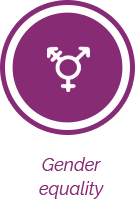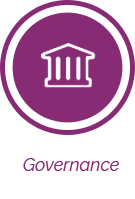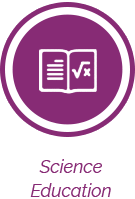Responsible Research and Innovation (RRI)
Responsible Research and Innovation (RRI) has become a cross-cutting issue in Horizon 2020, the EU Programme for Research and Innovation 2014-2020. RRI is a wide umbrella connecting different aspects of the relationship between R&I and society. According to the European Project RRI Tools, RRI seeks to bring issues related to research and innovation into the open, to anticipate their consequences, and to involve society in discussing how science and technology can help create the kind of world and society we want for generations to come.
Gender equality
ICIQ follows an equality plan based on the international and national regulations and laws that promotes equal opportunities and non-gender discrimination in human resources policies dealing with recruitment, formation and promotion. In addition, the plan takes into account equal measures to reconcile work and family life and includes a protocol against sexual harassment.
I2: ICIQ Impulsion aims at establishing a gender balance, both in its selection panels and the recruited fellows, with the target of a ratio of men/women of at least 67/33%, without compromising the criteria of merit in the selection process. The success ratio of men/women will be monitored throughout the programme development showing whether specific measures should be implemented to target one of the genders.
Governance
I2: ICIQ Impulsion includes Responsible Research and Innovation principles throughout all the programme, in an effort to better align the research to be carried out with the values, needs and expectations of society.
The first step towards a RRI strategy consist in offering the best working conditions to the postdoctoral researchers to join the programme. ICIQ has recently been recognised with the HR Excellence in Research award, showing the institute’s commitment to implement policies and best practices to reach the standards of the European Commission in Human resources. Through the implementation of the principles of the EC’s European Charter of Researchers and Code of Conduct, where ethics and research integrity, together with gender equality and diversity, play a central role.
Open access
According to Horizon 2020 funding rules requesting projects to provide open access to all peer reviewed scientific publications, I2: ICIQ Impulsion fellows will publish their results in high-impact factor scientific publications and give free access to them (at publication or within six months maximum). Published articles will be uploaded at ICIQ institutional (RecerCat) and public repositories (OpenAire).
Public Engagement
ICIQ’s Communication and Image Unit is dedicated to promote the Institute and its activities at both local and (inter)national levels to reach out to the next generation of scientists and society. ICIQ runs a diverse array of outreach activities and creates assorted materials for specific target audiences, including industry stakeholders, university researchers, teachers, primary- and high-school students and general public. Fellows from the I2: ICIQ Impulsion will have the opportunity to participate in these events and/or prepare specific outreach activities based on their own projects.
Science Education
ICIQ is a regular participant in a broad spectrum of pedagogic activities aimed at improving science dissemination and education within the public system. Most of these activities focuses on making STEM careers more attractive to young students. ICIQ counts with a fully-equipped Teaching and Learning Laboratory to carry out chemistry workshops and courses. The institute has recently launched the ICIQ Virtual lab with a whole bunch of educational resources to help schools and families to interact with chemistry. Moreover, students at different stages can take short stays at ICIQ’s research laboratories experiencing a vibrant environment of cutting-edge research in chemistry.






